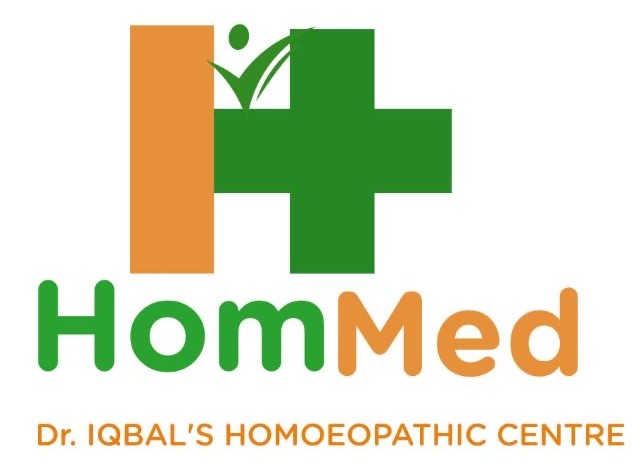Introduction
In homeopathy, every disease has a cause, and true healing begins when we identify and address this root cause. The repertory rubric “Ailments from” plays a crucial role in this process, helping homeopaths trace a patient’s illness back to the specific event, emotion, or exposure that triggered it.
Unlike conventional medicine, which often focuses on treating symptoms, homeopathy recognizes that symptoms are expressions of an underlying disturbance. By identifying the true origin of suffering, homeopathic remedies work to restore harmony between the mind and body.
This article explores the depth and significance of “Ailments from” and how it guides us toward precise remedy selection.
- What Does “Ailments from” Mean?
The phrase “Ailments from” in homeopathy refers to the causative factors behind a person’s illness. It helps us understand why a patient became sick rather than just focusing on what symptoms they are experiencing.
For example:
• “Ailments from grief” → The illness developed after an emotional loss.
• “Ailments from exposure to cold” → The patient fell ill after being exposed to low temperatures.
Understanding these causes is essential in prescribing the most suitable remedy that resonates with the patient’s unique experience.
2. The Mind-Body Connection in “Ailments from”
Homeopathy emphasizes that the mind and body are deeply interconnected. Many physical illnesses originate from emotional disturbances, and unresolved emotions can manifest as chronic diseases.
For instance:
• A man who lost his job and felt intense stress later developed gastric ulcers (Ailments from mental exertion).
• A woman who suppressed her emotions after heartbreak started experiencing thyroid dysfunction (Ailments from grief).
• A child who witnessed a traumatic event began suffering from asthma (Ailments from fright).
By addressing the underlying mental or emotional conflict, the correct homeopathic remedy not only treats the disease but also helps restore emotional balance.
3. Categories of “Ailments from” and Their Homeopathic Remedies
(A) Ailments from Grief, Sorrow, and Emotional Loss
Grief has a deep impact on the body’s vitality. It can lead to insomnia, depression, headaches, or even autoimmune disorders.
Remedies:
• Natrum Muriaticum → Silent, deep grief. Prefers to be alone, does not express emotions.
• Ignatia → Sudden emotional outbursts, sighing, lump in the throat, mood swings.
• Phosphoric Acid → Apathy and exhaustion, as if life has lost meaning.
💡 Example: A woman loses a loved one and becomes emotionally distant, later developing migraines. Natrum Muriaticum can be helpful.
(B) Ailments from Shock, Fear, or Bad News
Shock disrupts the nervous system, leading to panic attacks, fainting, or paralysis-like symptoms.
Remedies:
• Aconite → Sudden fear of death, palpitations, intense restlessness.
• Opium → Emotional numbness, frozen emotions after trauma.
• Gelsemium → Trembling, weakness, performance anxiety.
💡 Example: A student suddenly freezes before an important exam and feels weak. Gelsemium may help restore confidence.
(C) Ailments from Suppressed Emotions (Anger, Love, Jealousy, Humiliation)
When emotions are not properly expressed, they find other outlets in the body, such as high blood pressure, ulcers, or hormonal issues.
Remedies:
• Staphysagria → Suppressed anger, humiliation, leading to bladder issues or trembling.
• Nux Vomica → Irritability, digestive problems due to work stress.
• Lachesis → Jealousy, emotional intensity, throat complaints.
💡 Example: A man who endured years of workplace humiliation develops chronic acidity. Staphysagria may help process these emotions and relieve the physical symptoms.
(D) Ailments from Physical Causes (Cold, Heat, Overwork, Surgery, Injury)
External environmental factors can weaken the body’s natural resistance, making it vulnerable to disease.
Remedies:
• Ailments from Cold Exposure → Dulcamara, Silicea, Rhus Tox
• Ailments from Sun Exposure → Glonoine, Belladonna, Natrum Carb
• Ailments from Overexertion → Arnica, Calc Fluor, Sarcolactic Acid
• Ailments from Surgery/Shock to Vital Force → Opium, Staphysagria, Phosphoric Acid
💡 Example: A laborer develops joint pains after working in damp conditions. Rhus Tox may be the indicated remedy.
4. “Ailments from” as a Metaphor for Healing
Every disease tells a story. Symptoms are not random; they are the body’s way of expressing an unresolved conflict or exposure.
Imagine a calm lake (a healthy person). If a stone (emotional or physical trauma) is thrown into it, ripples (symptoms) appear. The bigger the stone, the bigger the disturbance.
Homeopathy does not just smooth out the ripples – it removes the stone itself, allowing the lake to return to its natural state.
5. The Role of Awareness in Healing
Prescribing the right remedy is just one part of the healing process. Patients should also become aware of their triggers and learn how to process their emotions.
• Talking about past trauma can release pent-up emotions.
• Recognizing unhealthy patterns can prevent future illness.
• Using homeopathy as a tool for deep transformation can lead to lasting wellness.
Conclusion
The rubric “Ailments from” is one of the most profound concepts in homeopathy. It teaches us that:
✔️ Every disease has a cause – understanding it is key to healing.
✔️ The mind and body are connected – emotional wounds can manifest as physical illness.
✔️ Symptoms are messages – instead of suppressing them, we must decode them.
✔️ Homeopathy treats the person, not just the disease – by removing the root cause, it restores balance.
By listening to the whispers of disease, we can unlock the secrets to true healing.
Would you like to explore specific remedies under “Ailments from” in more detail? Let me know!
Bibliography
1. Boericke, William. Pocket Manual of Homeopathic Materia Medica & Repertory. B. Jain Publishers.
2. Kent, James Tyler. Lectures on Homoeopathic Materia Medica. B. Jain Publishers.
3. Hahnemann, Samuel. Organon of Medicine. Sixth Edition.
4. Allen, H.C. Keynotes and Characteristics with Comparisons of Some of the Leading Remedies of the Materia Medica.
5. Murphy, Robin. Homeopathic Clinical Repertory. B. Jain Publishers.
6. Synthesis Repertory. Homeopathic Medical Repertory.


